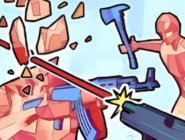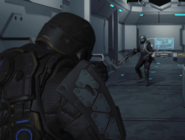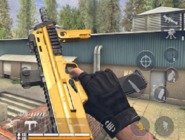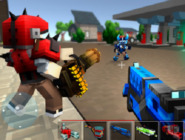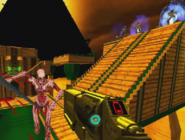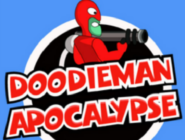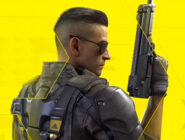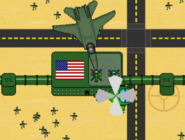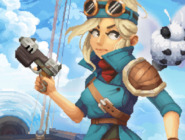Splitgate 2
Advertisement
Advertisement

Splitgate 2 is the sequel to the arena-based multiplayer shooter that blends classic gunplay with a portal system. The game continues the formula established in the original but introduces new structural elements, including class-based gameplay, larger maps, and new movement options. Developed by 1047 Games, this title expands the player experience through a mix of competitive and creative content. It retains its focus on speed, coordination, and spatial control, while also aiming to appeal to a broader player base through accessibility improvements.
Evolution of gameplay design
In Splitgate 2, players can still place portals on specific surfaces to instantly travel across the map, but the way these portals are used now depends on the player’s faction. Each of the three available factions modifies gameplay by changing how abilities recharge, how players move, or how they interact with the map. This class-like system adds a layer of tactics to matches that previously focused purely on equal footing. The portal mechanic remains intact across all game modes but is now accompanied by features that reward different styles of play.
Content and systems introduced
The game introduces several new features that expand its scope:
- A battle royale mode with portal functionality
- Faction-based gameplay with unique passive traits
- A community map editor with public sharing
- Seasonal progression with unlockable rewards
- A revised control scheme with simplified portal input
While the original Splitgate focused on symmetrical combat in mirrored arenas, the sequel offers more diverse map structures. Some stages are vertical, others are open-field, and several are designed to encourage faction-based coordination. This variety affects how players use portals—whether to escape, attack, or reposition.
Player experience and match variety
Splitgate 2 supports both casual and ranked matchmaking, as well as private custom games. The inclusion of “The Lab” map editor allows players to experiment with their own level designs, which can be submitted for inclusion in official rotations. Weapon handling remains responsive and consistent, but now operates within a system of faction-influenced loadouts. While players can no longer freely switch weapons mid-match, they can tailor their starting gear according to their preferred role. Match pacing depends heavily on map type, with traditional arena matches being shorter and more reactive, and battle royale modes requiring broader strategy.
Technical stability and community updates
The launch version of Splitgate 2 was more stable than its predecessor, benefiting from lessons learned during the first game’s growth phase. The developers implemented a new backend system to handle matchmaking, progression, and customization. Despite some initial controversy regarding the price of cosmetic items, adjustments were made quickly. Players have also been vocal about map balance and faction ability strength, prompting early patches. The development team continues to engage with community feedback and has laid out a roadmap for future content, including new factions and tools for custom tournaments.
Related games
Comments



